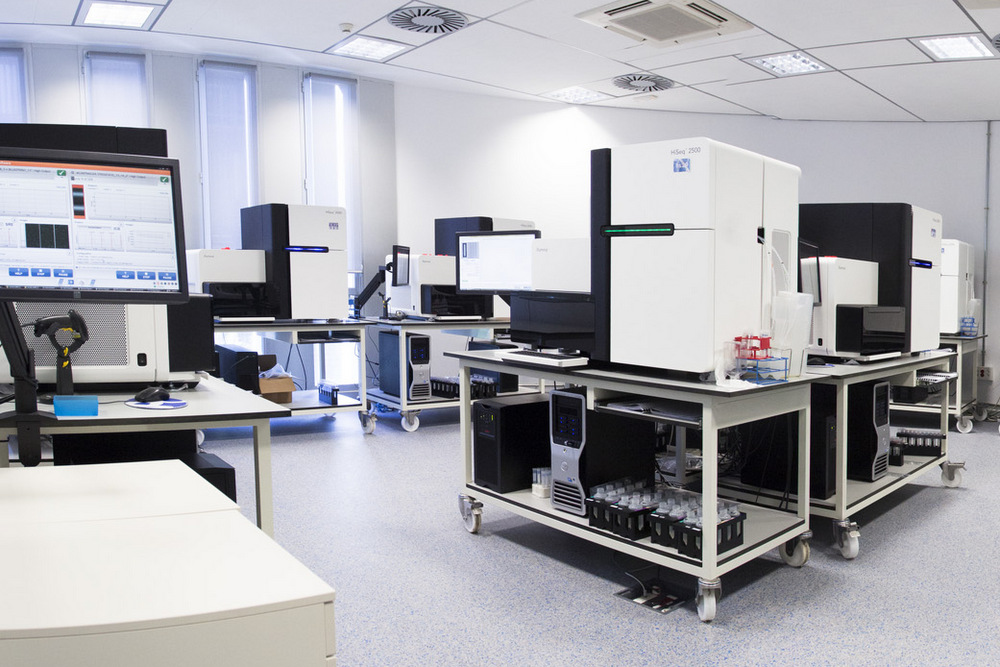Diagnostics and gene discovery
Our group is dedicated to providing patients and families affected by neuromuscular diseases with a rapid diagnosis in order that they can be put onto the optimal care pathway and have the opportunity to participate in clinical research. In many cases, where the genetic test results reveal a defect that is already known to cause the disease, a reliable diagnosis can be achieved in the standard clinical diagnostic setting. However, although standard diagnostic testing and in particular newer approaches such as whole exome sequencing (WES) have been extremely successful in diagnosing patients and discovering novel Mendelian disease genes, a large number of patients and families with rare disorders remain unsolved. This includes about 30-50% of all patients with neuromuscular disease who have undergone WES.
Identifying the genetic cause of heritable rare disorders is challenging for several reasons, including the limited numbers of patients affected by these rare and ultra-rare diseases; the technical limitations of WES, which can result in uneven coverage and gaps; non-coverage and difficulty assigning pathogenicity for variants in non-protein-coding regions of the genome; large repeat expansions and structural variants, including copy number variants (CNVs); digenic or polygenic inheritance; extreme phenotypic variability; and absence of molecular and functional validation of candidate genes.
Deep phenotyping of well-defined patient cohorts is essential to circumvent these limitations, as it provides more detailed descriptions of disease characteristics and variations. The integration of deep phenotypic data with genomic data allows a more comprehensive view of disease variation and supports the development of precision medicine. Our group has built up cohorts of deeply phenotyped patients with rare NMDs over the last two decades, including a cohort of more than 1,000 families with CMS, as well as cohorts of patients from consanguineous families with rare neurogenetic disorders such as ataxia and brain malformations. In Ottawa, we are including more undiagnosed families in gene discovery research, applying the latest techniques and working in collaboration with major sequencing centres in Canada and Europe and with important international research projects such as Solve-RD to solve the most challenging cases.
Safe and secure data sharing that protects patient confidentiality while enabling researchers to find other cases similar to their undiagnosed patients and to compare sequencing results and detailed phenotypic data is essential to rapid progress in this area. We share all our data within the RD-Connect Genome-Phenome Analysis Platform in order to allow it to be queried by other researchers in the hope of finding confirmatory cases and discovering new causative genes.
In addition, we have recently implemented “proteogenomics” as a powerful tool to solve unsolved cases in neuromuscular diseases. Particularly in cases where pathogenicity is still unclear following DNA sequencing, we can use patient-derived muscle biopsies or primary cell lines to perform proteomic assays, then study the proteomic signature and intersect the results with the genomic findings. This allows us to correlate molecular genetic perturbations with altered protein abundances and thus pinpoint the gene responsible for the disease.
Click here to read a viewpoint article on proteogenomics and its application to neuromuscular diseases.

